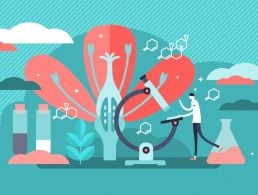Take it from those in the know, AI and analytics workers need a variety of soft and tech skills to enjoy successful careers.
Earlier this week, we featured some career advice tips from a group of AI and analytics professionals. Their industry-specific tips included getting an understanding of AI’s broader applications as well as embracing a practical ‘learn by doing’ approach.
We decided to return to these leaders and ask them for their thoughts on the most important skills people need to have when working in the sector.
Luckily, many of their answers overlapped, which means you should definitely pay attention to these skills areas if you’re thinking of a career in AI and analytics.
Maths
“Working in AI requires a strong foundation in mathematics which is at the core of AI,” says Gary Mullane of BearingPoint. “Understanding statistical analysis and concepts like classification, clustering, regression are key.”
For analytics, a knowledge of stats and methods used in data analysis – such as hypothesis testing, regression analysis and time series analysis – is essential.
Adam Grant, a finance and analytics consulting manager at Deloitte, says that data scientists need to focus on their maths and modelling skills – calculus, statistics and linear algebra.
Programming languages and databases
“We’d recommend a strong understanding of Python, which is the leading language for AI and machine learning,” say Workhuman’s Andrew Keogh and Caoilte Guiry.
Owen Fenton of KPMG says that programming is “the backbone” of the data analytics and AI industry and mastering at least one language “is essential for success in this field”.
“SQL is an industry standard for managing and querying databases, but other programming languages like R and Python can prove more valuable, as they offer a powerful combination of versatility, power and ease of learning.”
According to Fenton, these languages provide access to “a wealth of bespoke libraries and packages, specifically designed for professional tasks such as data cleaning, data manipulation, statistical analysis and data visualisation.”
“By becoming a skilled user of one of these open-source programming languages, professionals can tap into a vast community of developers who are constantly contributing to development and package development,” he says.
Grant agrees with a lot of what Guiry, Keogh and Fenton say about programming languages. He adds that it’s worth getting an understanding of big data tools such as Airflow, Spark and Hadoop, too.
Logic and critical thinking
Mastercard’s director of software engineering, James Conway, thinks that logic and critical thinking are the most important skills for a career in AI and analytics.
“I have never encountered a project that didn’t require some sort of bespoke problem-solving to achieve its goals. Being able to identify the issues as they happen and quickly provide solutions is a necessary skill for anyone in the AI domain,” he says.
Conway also adds that an “eye for detail” is a big plus, especially if you’re working with complex data.
Communication
Keogh and Guiry both say that emotional intelligence, reasoning, persuasion and ideation are just as critical to success as some of the technical skills.
Mullane from BearingPoint is also keen to emphasise the communication and soft skills aspect of the job.
“A combination of technical and soft skills, such as critical thinking and problem-solving, is critical in building a career in AI or analytics. The ability of approaching problems in a structured and analytical manner and coming up with creative solutions is a very valuable skill.”
And, he says that effective communication skills and storytelling are needed to present insights and recommendations to stakeholders.
Data visualisation and presentation is another aspect of being able to communicate your work. Fenton from KPMG recommends getting to grips with some data visualisation tools to aid you as you take teammates and stakeholders through your findings. He mentions low-code and no-code tools like Tableau and Power BI, for example.
10 things you need to know direct to your inbox every weekday. Sign up for the Daily Brief, Silicon Republic’s digest of essential sci-tech news.




